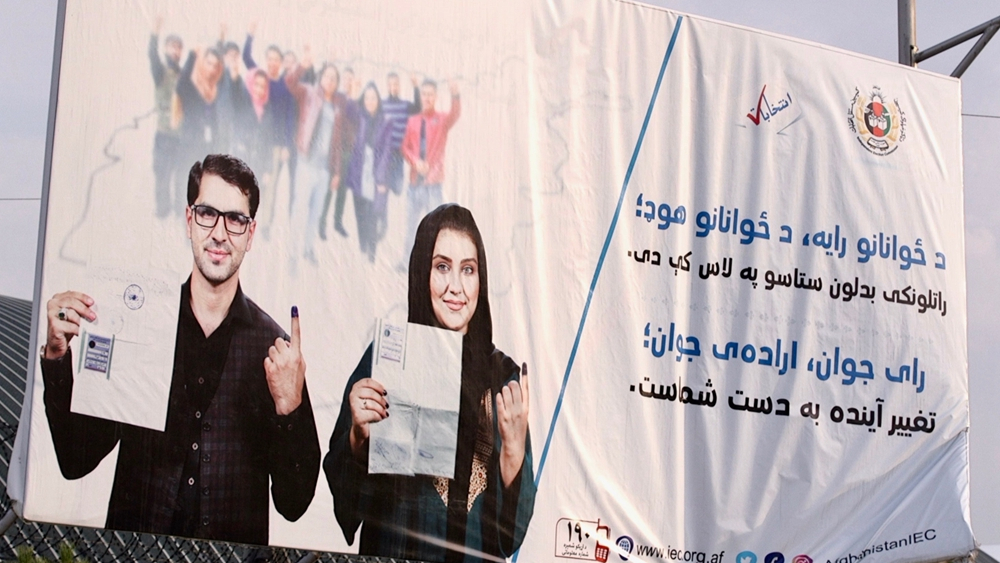
A banner showing Afghan people who have voted and dipped their finger in ink to prevent fraud. /CGTN Photo
A banner showing Afghan people who have voted and dipped their finger in ink to prevent fraud. /CGTN Photo
Afghan Member of Parliament Shinkai Karokhail is clearly frustrated having stepped down from a stage she has been sharing with other supporters of Afghan President Ashraf Ghani.
The source of her frustration is the results, or lack of them, about two months after Afghanistan held a presidential election.
"It cannot be delayed for weeks and months so it could be a matter of a few more days," says Karokhail, adding, "The voters expect them to announce the vote because they are impatient."
All sides are hoping a clear winner will emerge rather than an expected runoff election between the two main candidates.
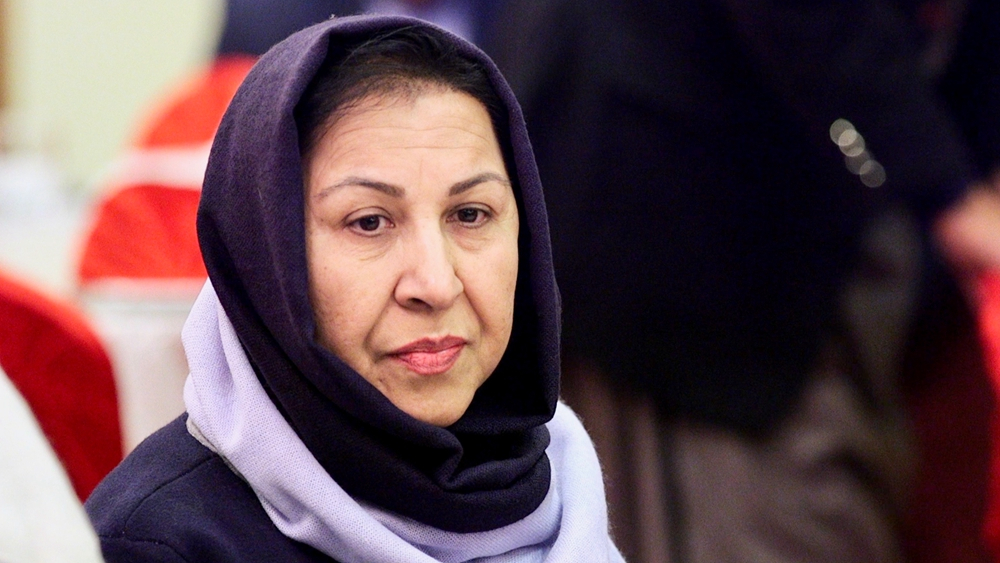
Afghan Member of Parliament Shinkai Karokhail. /CGTN Photo
Afghan Member of Parliament Shinkai Karokhail. /CGTN Photo
In the meantime, there is political gridlock and an inability to advance peace talks with the Taliban.
Karokhail alleges the main holdup is a refusal to give the Independent Election Commission (IEC) access to seven districts.
"They do not allow the election commission members to recount some of the polling stations which creates some concern," she says.
Across town, at an informal briefing held by the campaign chief for the main opposition leader Dr Abdullah Abdullah, the blame is placed on Ghani's team
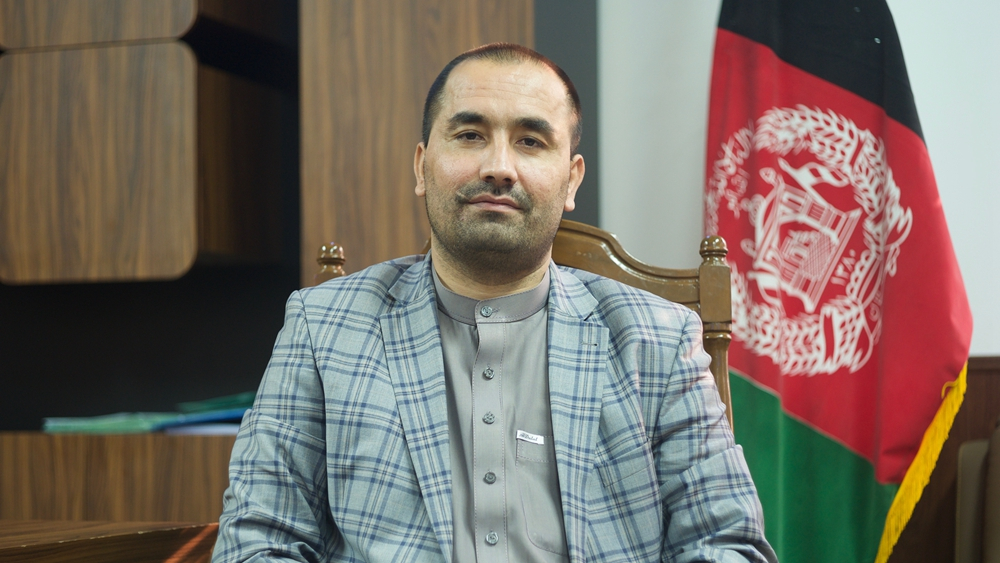
Independent Election Commission (IEC) Commissioner Aurangzeb. /CGTN Photo
Independent Election Commission (IEC) Commissioner Aurangzeb. /CGTN Photo
Abdullah Abdullah's Campaign Chief Ali Ahmad Osmani says the president's team has put pressure on the IEC to include votes that were cast outside of the authorized polling times along with other irregularities with the new biometric voting system.
"The capacity of the independent commission election is not so high it can manage all the issues," says Osmani.
The IEC denies this saying there is no doubt September's vote was the most transparent yet.
"From a technical, from an operational, from a logistic perspective it was a great and the best election conducted in Afghanistan," says IEC Commissioner Aurangzeb.
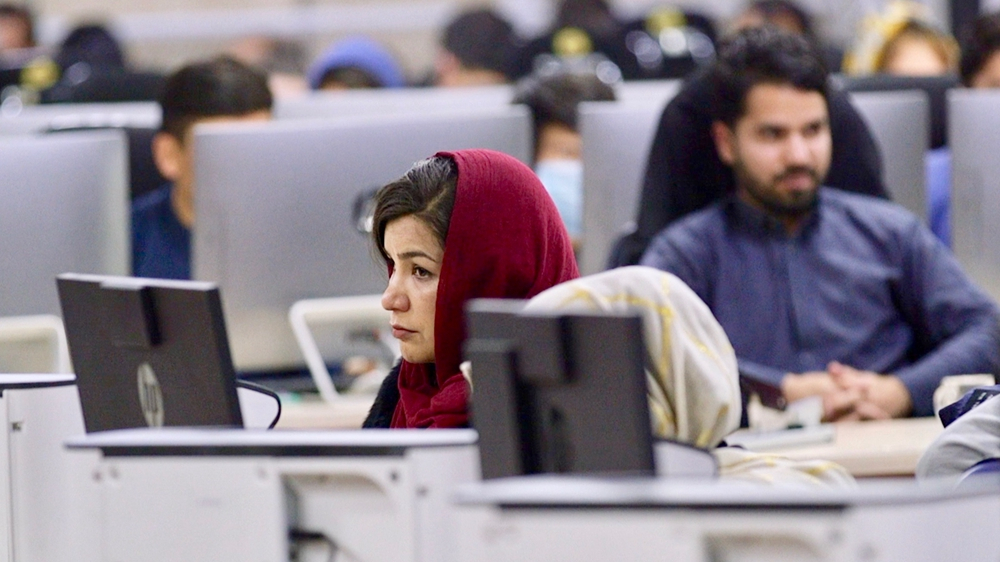
Vote counting at the Independent Election Commission. /CGTN Photo
Vote counting at the Independent Election Commission. /CGTN Photo
"Through our system we prevent the proxy vote, we prevent the ballot stuffing, and also we can identify the valid and invalid votes," he says.
But standing outside the IEC counting center one independent election observer from Transparent Election Foundation of Afghanistan (TEFA) seems worried.
"If the current condition (continues) here unfortunately we will see too much fraud in the election because they are manipulating the original data and they are removing the signs of fraud and it is impossible for the IEC and any other entities to clearly deter frauds and come up with a concrete and acceptable conclusion for the people of Afghanistan," says TEFA observer Naser Naserizada.
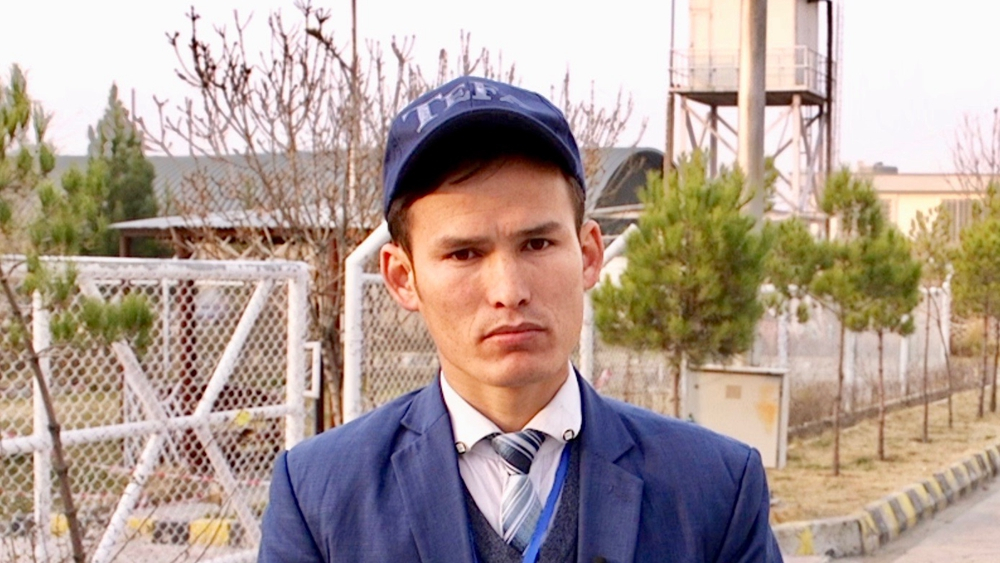
Naser Naserizada from the Transparent Election Foundation of Afghanistan. /CGTN Photo
Naser Naserizada from the Transparent Election Foundation of Afghanistan. /CGTN Photo
On top of alleged fraud there are also concerns of the vote count undermining the final result.
There is still no exact figure on how many of Afghanistan's roughly 9.7 million registered voters turned out to cast a ballot on election day, though most estimates are well below two million, making it the lowest voter turnout ever.